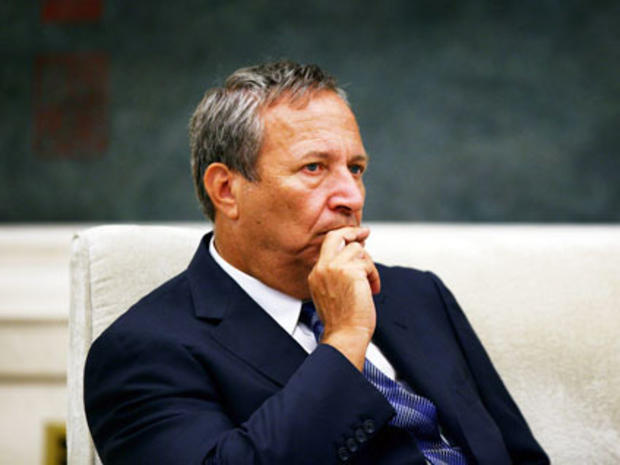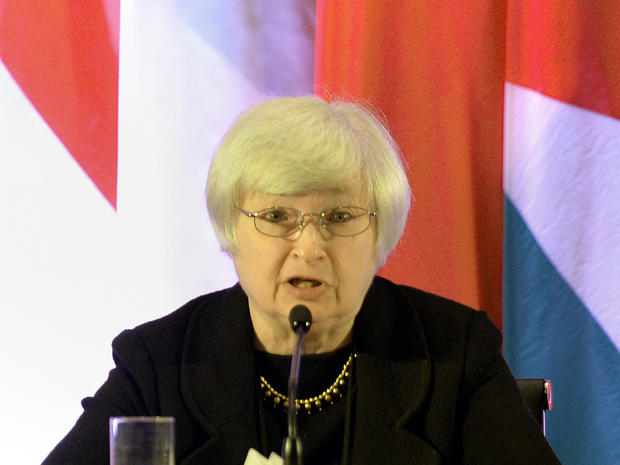Weighing Yellen vs. Summers for Federal Reserve
WASHINGTON Lawrence Summers is the White House insider with a direct line of communication to President Barack Obama. Janet Yellen is the Federal Reserve veteran with a long list of congressional patrons.
The two Ivy League-trained economists have emerged as leading contenders to replace Ben Bernanke as chairman of the U.S. central bank. Obama could announce his nominee in the coming weeks.
The top post ranks higher than Cabinet secretaries, without the longevity of Supreme Court justices. Fed chairmen serve four-year terms, but their stints don't coincide with presidential terms and the Fed's independence is jealously guarded.
The central bank wields extraordinary influence over the lives of millions of Americans. Its two main missions are fostering maximum employment and stabilizing prices. With its power to regulate the supply of money and set interest rates, it influences economic activity, hiring and inflation. It also is the leading regulator of banks and plays a crucial role as the country's lender of last resort when banks can't get their money elsewhere.
So in the aftermath of the financial crisis in 2008 and with national unemployment still high at 7.4 percent, the selection of a successor to Bernanke has assumed some drama.
A look at Summers and Yellen and their experience and stand on some issues:
Experience
Summers has held numerous public policy posts, beginning as a member of the Council of Economic Advisers under President Ronald Reagan in 1982. But he has not worked inside the Fed. He was chief economist at the World Bank from 1991 to 1993. Under President Bill Clinton, Summers served as deputy secretary and then secretary of the Treasury. He was president of Harvard University from 2001 to 2006. Obama appointed him to serve as the director of the National Economic Council in 2009, a post he held until November 2010. He is a professor of economics at Harvard. He also has ties to Wall Street, having consulted for Citigroup and the exchange company Nasdaq OMX.
Early in her career, Yellen worked as an economist at the Fed and was a business and economics professor at the University of California, Berkeley, when she became a member of the Fed's board of governors in 1994. Clinton selected her to chair his Council of Economic Advisers from 1997 to 1999. She was president of the San Francisco Federal Reserve Bank, one of 12 Federal Reserve districts. In 2010, Obama selected her as vice chair of the Fed's board of governors, a position she has held since.
Regulation
Summers helped the Obama administration devise the proposals that eventually would shape the financial regulation bill that Congress passed and Obama signed into law in 2010, much of it over the objections of big banks. That aggressive stance is in contrast to Summers' support for legislation during the Clinton administration that allowed commercial banks to engage in investment banking, a deregulatory step that permitted banks to buy and sell mortgage-backed securities and other financial instruments that increased their exposure to risk. Summers' critics say his Wall Street work and his stance in the 1990s suggest he would be a less than enthusiastic regulator. But his backers say his support for a regulatory overhaul after the financial crisis belies those concerns.
Yellen has advocated tough regulations since her time at the San Francisco Fed. She is credited for issuing early warnings that the housing bubble and unregulated financial practices threatened the economy. As the Fed's vice chair, she has called for additional financial system safeguards. In a speech in June, she said it might be necessary to require banks to set aside more capital than the increases that have been proposed to reduce the threat they might pose to the broader financial system. Some lawmakers have called for a return to pre-Great Depression restrictions separating commercial banks from investment banks. "I am not persuaded that such blunt approaches would be the most efficient ways to address the too-big-to-fail problem," she told an international monetary conference in Shanghai, China.
Monetary Policy
Summers has been a strong advocate of a direct infusion of government spending to respond to the recession through taxpayer-financed stimulus programs. But even if he believes that the Fed's massive bond purchases that have had the effect of pumping hundreds of billions of dollars into the economy aren't as effective in kick-starting a recovery, his backers insist there will be continuity with the current policy no matter whom Obama chooses for the post. What's more, massive fiscal stimulus is highly unlikely, given opposition from congressional Republicans to increased spending.
Yellen's approach to monetary policy is described as "dovish," meaning she is more inclined to focus on meeting the Fed's maximum employment goal. In a speech in March, she acknowledged the inflation risks and costs associated with expanding the money supply, but she argued that "insufficiently forceful action to achieve our dual mandate also entails costs and risks." She added: "At present, I view the balance of risks as still calling for a highly accommodative monetary policy to support a stronger recovery and more rapid growth in employment."
X-Factor
Inside the White House, Summers is the favorite. As director of Obama's National Economic Council, Summers led the president's crisis brain trust that forged both a response to the economic collapse and the financial meltdown with a combination of stimulus spending and regulatory proposals. At Treasury under Clinton, Summers helped manage the Mexican peso crisis in 1995 and the Asian currency crisis of 1997-98. That experience, no doubt, is a factor in Obama's consideration. Obama admires his intellect, and advisers see him as the candidate with the best experience to deal with international economic crises that still could erupt and threaten the United States' modest recovery.
His supporters rave about his intellect while conceding he can be prickly and supercilious and is better known for winning arguments than building consensus. Still, they say he managed to successfully lead a White House economic team, many of whose members remain loyal admirers. And while he would be new to the Fed, Summers has allies such as Federal Reserve Board member Jeremy Stein who could smooth his way in the consensus-oriented Federal Open Market Committee that sets monetary policy for the central bank.
Yellen would be the first woman to chair the Fed, a historical achievement that is not lost on the White House, and that has prompted leaders of some women's groups to rally to her side. The gender issue is all the more prominent because Summers was forced to resign as president of Harvard in 2006, in part because of comments he made raising questions about whether women were skilled in math and science. Moreover, Obama did select her to be the Fed board's vice chair in 2010.
She also has won powerful backing from Senate Democrats, particularly more liberal senators. In a letter urging Obama to nominate Yellen, about 20 Democratic senators said her experience setting monetary policy would lend continuity to the board. "The substantial size of the Federal Reserve's balance sheet, combined with the delicate state of the recovery," they wrote, "makes Governor Yellen's familiarity with the Fed process and communications skills that much more important."

